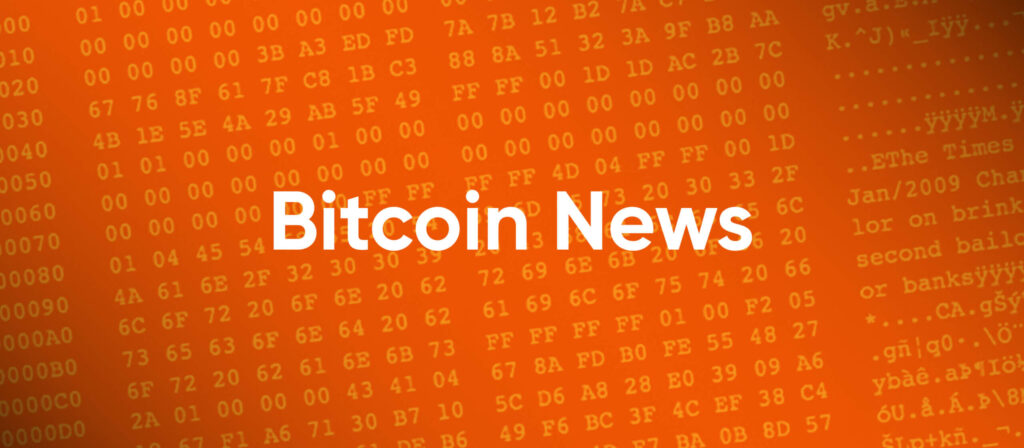The Financial Freedom Report is a newsletter focusing on how currency plays a key role in the civil liberties and human rights struggles of those living under authoritarian regimes. We also spotlight new tools and applications that can help individuals protect their financial freedom.
Good morning, readers!
In Nigeria, financial officials are revising digital asset regulations to impose taxes on digital asset transactions on regulated exchanges. This aims to bolster state revenue as more citizens turn to Bitcoin in response to rampant inflation, the naira’s devaluation, and the regime’s ever-increasing financial controls.
Meanwhile, in Cuba, thousands of citizens remain unable to access money the regime forced them to convert into Certificates of Deposit (CDs) in 2021. These funds have not been returned by the Communist Party of Cuba. If they eventually are, they will be paid out in since-hyperinflated Cuban pesos, a reality that stands in stark contrast to regime propaganda that it is working “for the people.”
In open-source freedom tech news, we feature NostrPIX, an experimental tool built during the bitcoin++ developer hackathon in Florianopolis, Brazil. It allows anyone in Brazil to pay any merchant or individual with Bitcoin over the Lightning Network. While it is still in its early stages of development, this stands to enable Bitcoin payments at nearly every merchant in Brazil, similar to how apps like Tando enable Bitcoin payments across Kenya.
We end with the official livestreams of the HRF-supported bitcoin++ developer conference in Florianopolis, Brazil, that brought together open-source developers and freedom tech enthusiasts for four days of technical gatherings to enhance Bitcoin’s privacy, usability, and censorship resistance. These livestreams offer a unique chance to view and understand the presentations and workshops at the event.
Now, let’s jump right in!

Nigeria | Introducing Digital Asset Transaction Tax to Boost State Revenue
Nigerian officials plan to amend their digital asset regulations to tax digital asset transactions in a coercive effort to boost the regime’s dwindling revenues. The Nigerian Securities and Exchange Commission (SEC) is reviewing a new framework to tax transactions on regulated exchanges, allowing the regime to extract even more value from the growing digital asset sector. Nigerians, especially the younger population, increasingly have turned to Bitcoin and stablecoins to escape high inflation, a devalued naira, and an authoritarian regime that repeatedly undermines financial autonomy and human rights. The new tax could hinder the efficiency of tools like Bitcoin by making transactions more expensive. But enforcing this tax beyond regulated platforms presents a challenge. Bitcoin held in self-custody and transacted peer-to-peer remains largely outside the reach of authoritarian states.
Cuba | Citizens Remain Locked Out of Devalued Funds
Thousands of Cubans remain locked out of their savings after the regime forced them to convert Cuban Convertible Peso (CUC) deposits into Certificates of Deposit (CDs) in 2021. This policy was part of the “Tarea Ordenamiento” economic reforms, which eliminated the CUC, a convertible currency previously pegged to the US dollar. For years, Cubans who received foreign currency — whether through work abroad or remittances — were required to exchange it for CUCs, expecting they could later redeem those CUCs for dollars or other foreign currencies. But when the regime eliminated the CUC in 2021, it forced depositors to either accept a heavily devalued exchange rate for Cuban pesos (far worse than the advertised 24-1 ratio) or convert their money into Certificates of Deposit (CDs), with the promise of returning the equivalent value in foreign currency once liquidity allowed. Unbeknownst to Cubans, the CDs paid a negligible 0.15% interest and had no clear timeline for repayment. Today, many depositors still can’t access their money.
Google | Facilitating Censorship in Russia and China
Google is actively assisting authoritarian regimes like China and Russia to censor dissent, removing online content critical of the Kremlin and Chinese Communist Party. In Russia, Google complied with government requests to erase YouTube videos opposing the war in Ukraine, while in China, it removed references to the Tiananmen Square massacre and pro-democracy activism. With more than 70% of Russians relying on YouTube for news and China’s Great Firewall blocking independent sources, corporate compliance with state censorship enables state propaganda to proliferate as a dominant narrative. For activists and nonprofits seeking uncensorable communications, nostr — an open and decentralized protocol — offers a way to share information beyond the reach of authoritarian regimes. Activists and NGOs can get started here.
World | Transnational Repression Most Common Under CBDC-Leading Countries
New data from Freedom House reveals that 23 governments engaged in transnational repression in 2024, using abductions, assassinations, and forced deportations to silence exiled dissidents. Leading perpetrators include the authoritarian regimes of China, Russia, Iran, and Turkey — orchestrating over 1,200 incidents in the past decade. Notably, many of these regimes are at the forefront of central bank digital currency (CBDC) development, a technology that drastically increases state control over financial activity. By allowing governments to surveil, freeze, and block funds in real time, CBDCs strip activists of financial privacy and force them into greater vulnerability. As authoritarian states refine both digital and physical methods of repression, CBDCs may become a powerful weapon for crushing dissent beyond borders.
Niger | Delays Democratic Elections While Citizens Financially Struggle
Niger’s deteriorating economic conditions are set to continue as the ruling military junta has proposed delaying democratic elections until at least 2030 to contain a “security threat.” Army commander Abdourahamane Tchiani, who came to power in a 2023 coup, originally pledged a three-year transition to civilian rule. Now, that timeline appears extended to five years, allowing “the junta to restore security and regain control of territory captured by Islamist militants that have expanded their insurgency in recent months.” With inflation eroding Nigerien’s purchasing power and the general economic well-being of citizens declining, Niger can’t afford more military rule. This could be a pretext for Tchiani to consolidate power, especially as discussions emerge about dissolving political parties and granting him the rank of general.
Webinar Series for Nonprofits: Become Unstoppable
HRF will host a free, three-day webinar from March 17-19, teaching human rights defenders and nonprofits how to use Bitcoin to counter state censorship and confiscation. Sessions run daily from 10:30 a.m. to 12:00 p.m. EDT and are beginner-friendly. The webinar will be led by Anna Chekhovich, HRF’s Bitcoin nonprofit adoption lead and financial manager at Alexei Navalny’s Anti-Corruption Foundation, and co-taught by the prominent Bitcoin educator Ben Perrin.
SXSW | The Human Rights Risks of Central Bank Digital Currencies (CBDCs)
Join HRF at SXSW 2025 in Austin from March 7-13 to explore how CBDCs threaten financial freedom. Experts Roger Huang, Charlene Fadirepo, and Nick Anthony will discuss how authoritarian regimes use CBDCs for surveillance and control. Attendees can also visit HRF’s CBDC Tracker booth to explore an interactive map of CBDC developments worldwide.

NostrPIX | Enabling Bitcoin Payments in Brazil
NostrPIX is a new tool built just a few days ago during the bitcoin++ hackathon in Florianopolis, Brazil, that lets users pay any merchant or individual in Brazil with Bitcoin over the Lightning Network. To use NostrPIX, users scan a Pix QR code (the country’s widely used digital payment system) and pay with bitcoin from their Lightning wallet. Designed with the unbanked in mind, NostrPIX lets those who cannot open a Brazilian bank account to transact with Bitcoin and Pix (no sign-ups required, just instant payments). Its innovative approach won the bitcoin++ hackathon, showcasing its potential to bridge Bitcoin with traditional systems. While still a proof of concept, NostrPIX joins projects like Tando in Kenya, making Bitcoin more practical for everyday commerce and could inspire similar products elsewhere in countries facing political oppression.
Iris | Implements Double Ratchet Messaging for Better Privacy
Iris, a client for Nostr launched by Martti Malmi, implemented double ratchet messaging, an encryption algorithm similar to that used by Signal, significantly improving private communications for activists and human rights defenders. This ensures message metadata remains hidden, and with its implementation, past and future conversations on Iris stay private even if a user’s main Nostr private key is compromised. This upgrade empowers individuals in difficult political environments to communicate without fear of surveillance by reducing the risks of authoritarian regimes tracking their conversations. HRF is proud to have helped support Malmi as he invented and launched this innovation.
Presidio Bitcoin | New Bitcoin Co-Working and Events Space in Bay Area
Presidio Bitcoin is the Bay Area’s first dedicated co-working and events space. Located in San Francisco’s famous Presidio neighborhood, it will be a collaborative space for developers, educators, and freedom tech enthusiasts to connect, work, and innovate together to drive Bitcoin adoption forward. It draws inspiration from other Bitcoin hubs worldwide, like Bitcoin Park in Nashville, Tenn., Bitcoin House Bali in Indonesia, and Bitcoin Ekasi in South Africa. This time, aiming to create a community of Bitcoiners in the tech capital of the US. Presidio Bitcoin hopes to foster new talent and secure greater funding from Silicon Valley, becoming a central meeting point for those passionate about Bitcoin and freedom. HRF Freedom Fellows were able to visit the space recently, and HRF staff will be speaking at upcoming events at the venue in the near future. Check the space out here.
Cashu | Releases Cashu Development Kit
Cashu, an open-source Chaumian ecash protocol for Bitcoin integrated with the Lightning Network, released the Cashu Development Kit (CDK) in Rust (a common programming language). This makes it easier for developers to build and integrate Cashu wallets, expanding access to private Bitcoin transactions. With Cashu, users can spend Bitcoin-backed ecash without revealing their identity or transaction history. This enables private, cheap, and fast transactions with the tradeoff of being custodial. As digital financial surveillance increases, ecash offers an alternative to remain private. The CDK release expands the reach of said private Bitcoin transactions, providing more safety and anonymity for dissidents.
RoboSats | Adds LNp2pBot Orders on Android App
RoboSats, a privacy-focused peer-to-peer (P2P) Bitcoin exchange powered by the Lightning Network, added support for LNp2pBot orders in its Android app. Previously, users used Telegram to interact with LNp2pBot for P2P bitcoin trades. Now, they can access P2P orders directly from the RoboSats Android app. This integration enhances usability by reducing platform dependency and provides users with greater liquidity for P2P trades. HRF is pleased to see the continued development and interoperability of privacy-focused, self-custodial Bitcoin on and off ramps from this Bitcoin Development Fund grantee.
Bitcoin Dada | Visits Bitcoin Mining Site for Hands-On Learning
Bitcoin Dada, an HRF-supported nonprofit empowering African women with financial literacy and Bitcoin education, recently took its students on a trip to a Bitcoin mining site operated by Gridless in Kibwezi, Kenya. This visit provided students firsthand exposure to Bitcoin mining’s potential for driving economic growth and expanding electricity access in rural African communities while simultaneously helping decentralize the network. The site repurposes sisal waste (the waste from fiber production) to generate electricity, reduce blackouts, and provide power to homes in Kibwezi. As more and more off-grid sites like this come online, Bitcoin’s mining composition becomes less centralized and stronger against threats from authoritarian states.
RECOMMENDED CONTENT
bitcoin++ Developer Conference Livestream
Last week, bitcoin++ hosted the “hacking edition” developer conference in Florianopolis, Brazil. The event brought together Bitcoin developers and freedom tech enthusiasts for four days of hands-on development, workshops, and technical discussions to enhance Bitcoin’s privacy, accessibility, and censorship resistance. If you missed the event, you can catch the key sessions and workshops via live stream. Watch them here.
Nostr: The Importance of Censorship-Resistant Communication for Innovation and Human Progress
In this article for Bitcoin Magazine, Leon Wankum highlights why Nostr, a censorship-resistant protocol, is key to unlocking innovation and free expression. He explains how Nostr enables decentralized content sharing using cryptographic keys and relays, preventing central control of the protocol. This approach ensures that no single entity controls the flow of information, thereby enhancing freedom of expression. Alongside Bitcoin, Nostr has the potential to break corporate and state monopolies, allowing for grassroots progress and innovation on the individual level. You can read the full article here.

– If this email was forwarded to you and you enjoyed reading it, please consider subscribing to the Financial Freedom Report here.
– Support the newsletter by donating bitcoin to HRF’s Financial Freedom program via BTCPay.
– Want to contribute to the newsletter? Submit tips, stories, news, and ideas by emailing [email protected].
– The Bitcoin Development Fund (BDF) is accepting grant proposals on an ongoing basis. The Bitcoin Development Fund is looking to support Bitcoin developers, community builders, and educators. Submit proposals here.







